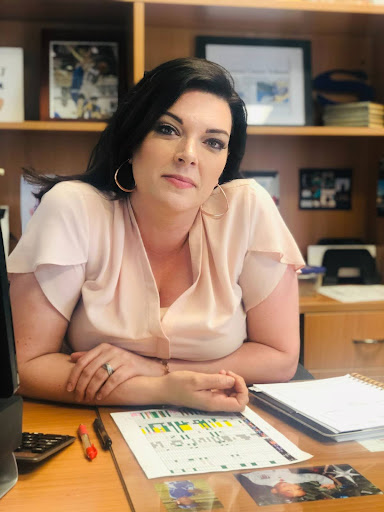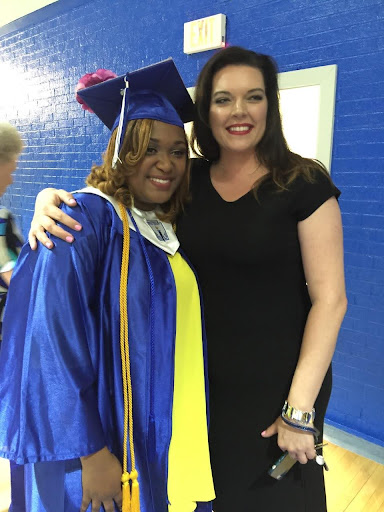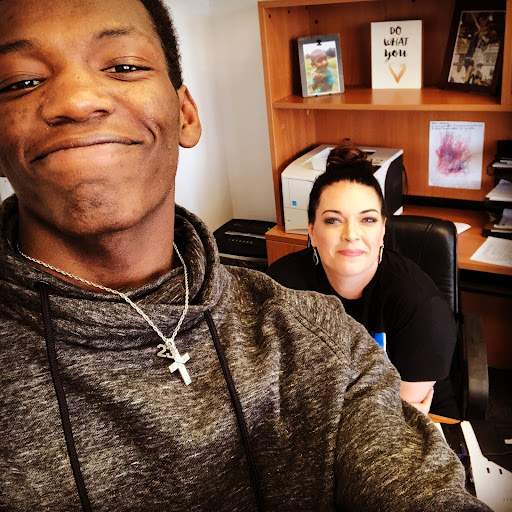
Navigating the Educational Maze: A Personal Journey from Dropout to Doctorate
By Kenzie Bond, Regional Director of Partnership Development

For most people reading this, I am a former High School Principal, Middle School Assistant Principal, 7th grade Science Teacher, or former Correctional Officer and Supervisor. What many people don’t know is that I am also a former high school dropout, who came perilously close to not graduating at all.
How does one go from standout in Advanced/Gifted & Talented and Pre-AP courses to a two-time high school freshman, and finally high school dropout — to then coming full circle as a high school principal with a Doctorate in Education?
My journey is both a reflection on the outdated, one-size-fits-all model pervasive in public education, and a story of redemption through the innovation of one school district in the mid 90’s, and individual teachers who never let labels and lesson plan requirements stop the natural curiosity and learning of their students.
I was extremely fortunate and privileged to be born into a home where both parents valued education and read avidly. That love for reading seemed to be burned into my DNA. From a very young age you could find me with a book, often one grabbed from my parent’s bookshelf and was at a much higher level than I should have been reading (and maybe of questionable content for an 8-year-old!).
This upbringing translated into a smooth entry into my academic journey. From the earliest days of my education, it was evident that I thrived in accelerated environments. Gifted and Talented programs became my norm, providing both challenges and opportunities for growth. Throughout my elementary years and into junior high, my school progress was relatively unencumbered.
My middle school years, specifically 5th and 6th grade, were when I learned the lasting effect a truly great teacher can have.
Mrs. Hutchison stands out as a beacon of inspiration in my academic odyssey. As my ELA and homeroom teacher in both the 5th and 6th grade (she moved up to the junior high with us) I was allowed to read as much as I wanted to, often venturing beyond the confines of the curriculum. Mrs. Hutchison recognized my thirst for knowledge and allowed me the freedom to explore, even when it deviated from the lesson plan. Her classroom felt like a warm, safe space to me, and I found myself going there after school just to pick a book off the shelf and read for a while.
High school beckoned with promises of new challenges. Pre-AP classes awaited, and I effortlessly sailed through with top grades, rarely needing to crack open a textbook outside of class. But as the school year progressed, so did my disillusionment with the conventional educational model.

The turning point came when I began to disengage from the system altogether, due to family issues and my own boredom inside the walls of the school. After not returning to school after Spring Break, the following school year found me in uncharted territory: a retained freshman, relegated to intervention classes. The irony was laughable — I, someone who had once thrived in advanced settings, now found myself misplaced in a knee jerk response of (unneeded) remediation.
My disengagement intensified with the rigid structures of a system that failed to recognize individual needs. Despite reading at a college level and excelling on standardized tests, I was lumped into multiple intervention classes due to the last few months of my (nonexistent) academic performance, where my presence proved more disruptive than constructive. Halfway through this school year, I dropped out of the traditional school system altogether.
Not too long after that, I was told about an innovative new option — the Alternative Center for Education (ACE) program. Unlike its disciplinary counterpart DAEP, ACE offered a lifeline to students like me, seeking an alternative path to academic success. Through a rigorous interview process, I gained entry into a realm where autonomy and accountability reigned supreme. This program placed your pathway to success entirely in your own hands, as you were solely responsible for your own attendance, coursework completion timeline, and taking advantage of any opportunities offered to you.
This was the environment I was looking for, where I was able to master the learning that came easy to me quickly and get the additional help I needed on what didn’t (looking at you, Algebra). Walk into any classroom at ACE and every student may be working on a different course — from English 1 to US History to Chemistry — and would walk the stage not at a predetermined time, but at the time that worked best for them.

The journey through ACE was not without its hurdles. Attendance issues threatened to derail my progress, leading to multiple dismissals from the program. Yet, with each setback, I discovered the importance of advocating for oneself, and having the benefit of trusted adults who would advocate for you. The final expulsion served as a wake-up call, as I realized that I would soon be turning 18, and now had the opportunity to make some “real life” decisions for myself.
In less than a year, I defied expectations, completing the remainder of my high school credits and paving a path towards graduation. The journey was fraught with challenges, but it was also a testament to the power of resilience and self-determination.
My experience stumbling from the top of the traditional education system taught me invaluable lessons about the importance of flexibility and personalized learning. It underscored the shortcomings of a one-size-fits-all approach and reinforced the need for teachers, and an educational system at large, that honor and adapt to individual strengths and aspirations.
As I reflect on my journey from dropout to Doctorate, I am reminded that success is not measured by conformity to norms, but by the willingness of everyone involved to forge unconventional paths in pursuit of one’s passions and potential.